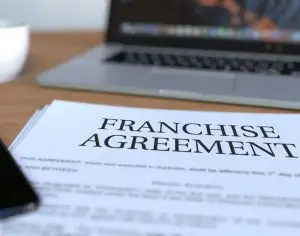Franchise agreements are heavily weighted in favour of the franchisor to provide control of the network and protect the brand. The franchisor usually also has greater financial resources and business experience. In most cases there is a management team that has the support of a specialist franchising solicitor. The franchisee on the other hand probably has less money, business experience and professional back-up.
In view of this imbalance, one might assume that it would be easy for a franchisor to shut down a dispute by simply enforcing the terms of the franchise agreement. Until a few years ago that is what usually happened. A swift reaction to any dissent by a franchisee also sent a message to the rest of the network that any non-compliance with the prescribed methods would be dealt with firmly. What has changed is the advent of social media and the reputational damage that widespread bad publicity can cause. Particularly how this can adversely affect the recruitment of new franchisees.
The development and maintenance of a franchise network requires continual recruitment; not only to open more branches but also to replace retiring or non-renewing franchisees. A good reputation and public image are therefore essential. Prospects are naturally cautious about where they invest and there are plenty of alternative opportunities. Due diligence is easy, and any on-line or social media negativity can cause new sign-ups to grind to a standstill.
To assist the levelling of the playing field, there have been some recent court decisions that have placed greater emphasis on the implied duty of good faith in franchise agreements. In another case, the enforceability of post-termination restrictions in certain situations was brought into question. Not surprisingly new franchise agreements have since been adjusted but the situation remains that franchising law and the power of social media appear to be slowly making the franchisee/franchisor relationship more equal.
Franchisors should also be mindful of two high court cases in the last ten years in which a franchisor took legal action against a franchisee and the franchisee won their counterclaim. This caused massive reputational damage and huge financial cost to the franchisor. We are now in a world where the balance of power in a franchise relationship is far more evenly weighted. So, in this evolving environment, how can disputes be avoided.
The first and most obvious way of keeping out of trouble is for the franchisor to make sure that the business can deliver the results that the franchisees have been told they can expect. Sadly, many franchisors do not operate a genuine pilot branch before start to recruitment. This is quite different from a company owned original business in which full salaries and overheads are not always considered.
The profitability of the business must be sufficient to provide a proper return for the franchisee, including depreciation, as well as management service fees for the franchisor. Unprofitable franchises usually don’t stay in business for very long but while they are operational, they can be the source of a lot of trouble and bring franchising into disrepute. A properly tested pilot and the guidance of an experienced franchise consultant would eliminate many disputes.
Full disclosure by the franchisor pre and during recruitment would eliminate most claims for misrepresentation, but it is seldom made. The BFA code of ethics states that, to assist due diligence, prospective franchisees should be provided with a full list of existing franchisees. Even with BFA members, this often doesn’t happen. And let’s not overlook the fact that the majority of UK business format franchisors are not members of the BFA. To make matters worse is the fact that this disclosure requirement overlooks ex-franchisees. A frank discussion about this thorny issue, before signing, supported by documentation, would eliminate most mis-rep claims. Of equal importance, the franchisor should always make sure that prospective franchises obtain independent legal advice.
Post signing, the provision of really good training, support and leadership will eliminate most problems. Unfortunately, in some cases these elements are lacking and basic issues, such as the provision and regular updates of an operations manual, are overlooked. Almost all franchise agreements state that, as an initial obligation, the franchisor will provide an ops manual and as an ongoing obligation it will be maintained. All too often this doesn’t happen, particularly with the updating. This can lead to deviations from the business model and a breakdown in the feeling of common purpose by the franchisees.
Poor leadership and management will soon cause unrest and dissent among franchisees who feel disregarded and no longer members of a team. One of the UK’s largest pizza franchises had to contend with a group of disgruntled franchisees who formed a WhatsApp group that became a breeding ground for discontent. This group eventually became so powerful that they eventually had their own website. Not surprisingly this disruption was very costly for the franchisor and brought about significant change. This could have been avoided if small issues and imbalances in the distribution of profitability had been handled better, at an earlier stage.
Obviously it would be naïve to suggest that all franchise disputes are caused by the shortcomings of the franchisor or that franchisees always fulfil their side of the relationship as they should. However, if the business model is profitable and they are provided with good training, support and leadership most franchisees will do so.
Not surprisingly, if the basic principles of good faith, honesty, transparency and mutual support are applied to a sound business proposition, disputes will be avoided.

































